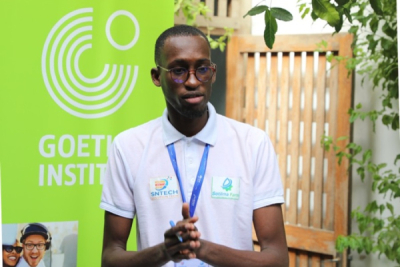McKinsey estimates that artificial intelligence (AI) could contribute as much as $1.2 trillion to Africa's economy by 2030. Unlocking this potential will largely depend on strategic talent development, a path Cameroon is now strongly pursuing.
Cameroon aims to train 60,000 artificial intelligence (AI) specialists by 2040, including 40% women, as part of its National AI Strategy (SNIA). Minister of Posts and Telecommunications Minette Libom Li Likeng recently unveiled this initiative, which is part of a broader vision to position the country as an African hub for artificial intelligence.
The strategy's key objectives include creating 12,000 direct jobs, developing 12 sovereign solutions with significant socioeconomic impact, and anticipating an AI contribution to national GDP of between 0.8% and 1.2%. Special attention is being given to linguistic diversity, with efforts to develop AI models that incorporate national languages. This is seen as a crucial way to boost digital inclusion and promote local cultural heritage.
To achieve these ambitions, however, Cameroon must address several critical gaps. The country still lags significantly in digital infrastructure, particularly in deploying modern data centers, developing secure cloud platforms, and ensuring consistent broadband connectivity, especially in rural areas.
This reality is reflected at the continental level in the latest ranking by the International Telecommunication Union (ITU). Cameroon scored 46.3 out of 100, placing 30th out of 42 African countries. This result falls below the continental average of 56, underscoring the need for the country to accelerate its efforts.
Addressing Talent Shortages and Promoting Inclusion
Training qualified talent remains one of the main challenges. A shortage of engineers, researchers, and AI specialists is holding back sectoral growth. To address this, Cameroon will need to invest heavily in creating centers of excellence, establish schools and institutes focused on advanced technologies, and integrate AI training programs into secondary and university curricula. Structuring partnerships between universities, tech companies, and public institutions will be essential to align educational content with market needs.
In addition, it will be crucial to implement continuing education and professional retraining programs to equip a broad segment of the population with the digital skills needed for tomorrow’s economy. Expanding access to high-speed internet, especially in remote areas, must accompany this momentum, as should the stimulation of an innovative entrepreneurial ecosystem capable of attracting investors and fostering the emergence of local solutions.
The goal of training 40% women is ambitious and commendable. Achieving it calls for proactive measures such as awareness campaigns, mentoring, support for women’s careers in tech, and efforts to combat gender stereotypes in science-related fields.
Despite these challenges, encouraging signs are emerging. The recent adoption of a data protection law and the first national consultations on AI reflect a clear political will to establish a robust regulatory framework. This is an essential condition for structuring the sector and building trust among stakeholders.
Samira Njoya



















